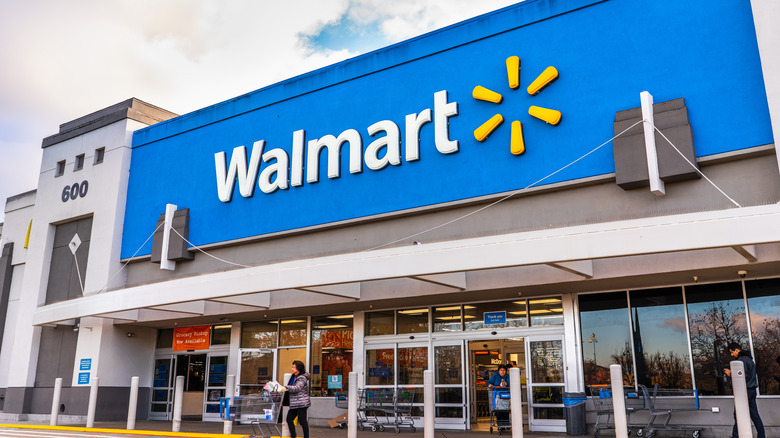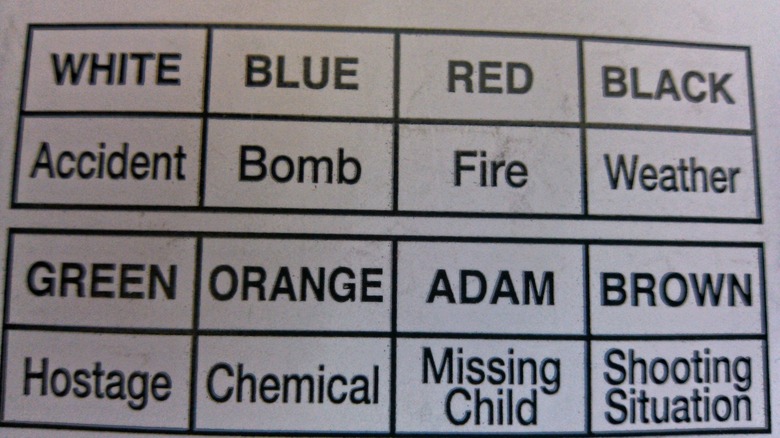What Code Black Really Means At Walmart
When it comes to something as big as Walmart, you can easily imagine it to be something along the lines of the military. The store itself is the base, the products are the ammunition, and the employees the soldiers in the war against high prices. It's also very efficient and requires its employees to be on call and ready to assist the loyal customers (no matter how utterly bizarre some may be) who frequent their aisles.
Among the list of stocking orders and aisle layouts that all employees must know, they must also know a secret series of protocols in the event something happens. Much like how a military base has protocols for training or a drill, your local Walmart store has a select list of "codes" (via QuerySprout) that you may overhear on the intercom. You may have overheard a "Code Spark" during a particularly busy shopping trip and seen an employee hurry over to open a register. Perhaps you hear a "Code White" over the intercom and then see an employee carrying janitorial supplies to an aisle where some milk is leaking. All of these "codes" have some meaning to them, ranging from simple requests to assist a customer to some more severe events, such as a missing child or a fire. But what does "Code Black" mean?
Walmart's Code Black is all about weather
If you're shopping in a Walmart during a thunderstorm, you may hear the intercom flicker on and someone mention something about a "Code Black" situation. A "Code Black" is the Walmart term that refers to weather, such as a tornado warning, a particularly severe thunderstorm, or any potentially dangerous weather scenario.
What happens during a "Code Black" scenario? The protocol's terms of action seem to differ from store to store. One Walmart worker, in a thread on Reddit, describes how a friend in Joplin, Missouri, was working in a Walmart when the 2011 tornado hit (via NIST), and the protocol called for everyone to gather in the center of the store (which had unfortunately disastrous results), while another worker's store protocol was for everyone to find shelter (even if it was in a freezer). It seems that while the plans differ from location to location, it's important that everyone follows these rules for the purpose of safety and to remain together.
But why the codes? Surely it'd be important to warn everyone about the danger of an incoming tornado or flood? This is to prevent panic among the customers, as these codes are used to help ensure order and let employees know what to do.
You may never hear a "Code Black" in your life, and we hope you never do, but in the event it happens, it's best to stay calm and follow the instructions given to you for safety of yourself and others.

